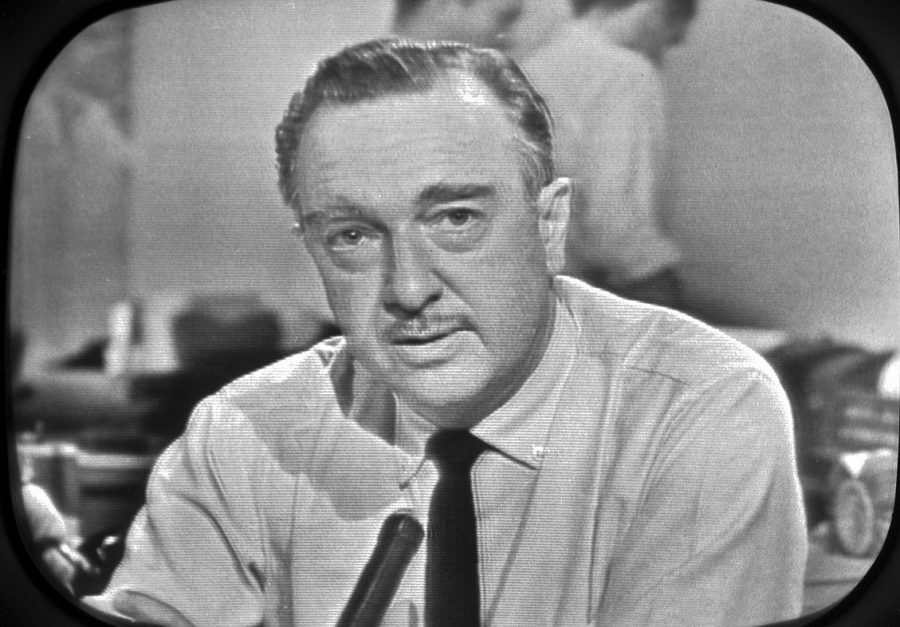Image via Media Village.
How American Outlook on the Vietnam War Changed
In 1968, Walter Cronkite of CBS News decided to go to Vietnam in order to investigate the aftermath of the Tet Offensive.
In Vietnam, the battles around the American Embassy, Hue, and Khe Sanh showed American military weakness as thousands of insurgent guerrilla fighters conducted a coordinated attack across all of South Vietnam.
Walter Cronkite was urged to report from Vietnam by his producers. While there, he saw the aftermath of the Tet Offensive.
His conclusion was that victory was not possible and the reality he observed contradicted the government’s story of the war. Cronkite found that “it seems now more certain than ever that the bloody experience of Vietnam is to end in a stalemate.”
Cronkite was in favor of the war before his trip to Vietnam, giving more weight to his conclusion “that we are mired in stalemate seems the only realistic, yet unsatisfactory, conclusion.”
He cemented this idea of the war with his final remarks: “It is increasingly clear to this reporter that the only rational way out then will be to negotiate, not as victors, but as an honorable people who lived up to their pledge to defend democracy, and did the best they could.”
https://youtu.be/Nn4w-ud-TyE
Weeks later, President Linden Johnson announced that he would not seek reelection. Johnson reportedly said that “if I’ve lost Cronkite, I’ve lost Middle America.”
Cronkite’s Report From Vietnam was his first editorial piece that he gave on air. The personal nature of television at the time resonated with viewers more than radio or the written word could.
Cronkite had developed a level of trust among his audience in America, the cultivation of which came with his reporting of the JFK assassination.
Many thought Cronkite was a more trusted name than any politician. Nixon in his election called Cronkite’s audience the ‘silent majority’ that carried him to the white house. Cronkite’s conclusion on the war was reinforced by the publication of the Pentagon Papers in 1971, in which it was stated that 70% of the reason to stay in the war was to avoid a humiliating U.S. defeat.
Many historians point to Cronkite’s Report from Vietnam as the turning point in American perception towards the war. The short remarks by Cronkite are thought to have hastened American acceptance that victory could not be achieved in Vietnam.
Before the report, the anti-war protests consisted largely of college-aged people, minorities, or people from the fringe hippie movement. With relatively middling sized groups to demonstrate or protest, the issue was slowly gaining attention.
After the somber report, many more Americans protested the war. The largest anti-war protests all occurred after the 1968 report, with the deadly Kent State Shooting in 1970.
The report from Vietnam showed the power and influence of television journalism; with a single nightly editorial, the country no longer trusted the government’s word on the ‘eventual victory in Vietnam’ that never came.
Cronkite’s report spoke truth to power in challenging the official line on the war, but also challenged Cronkite’s personal views on the war.
